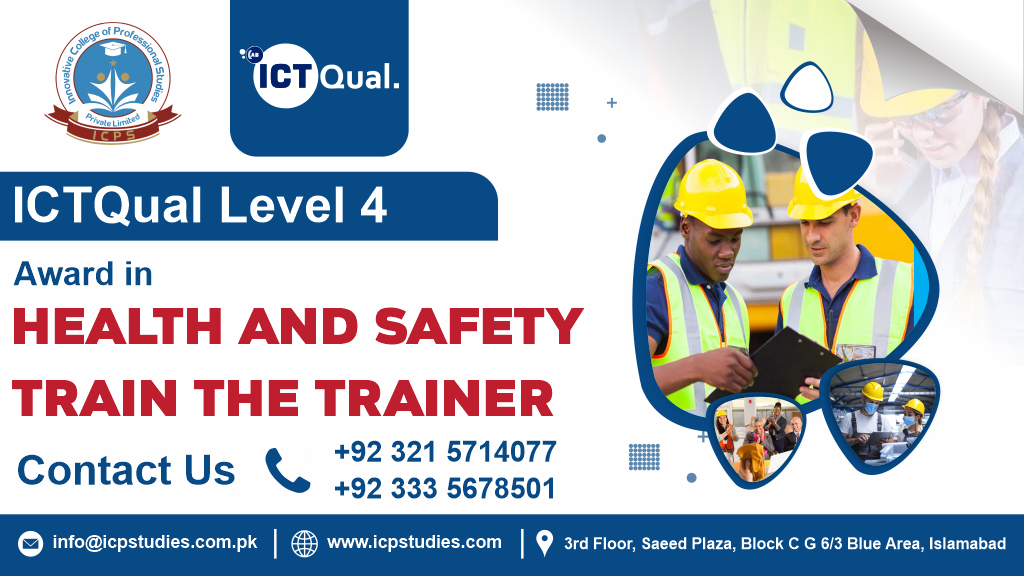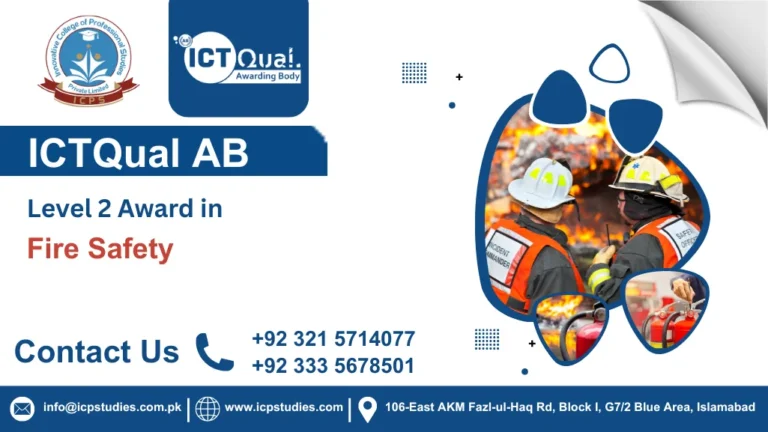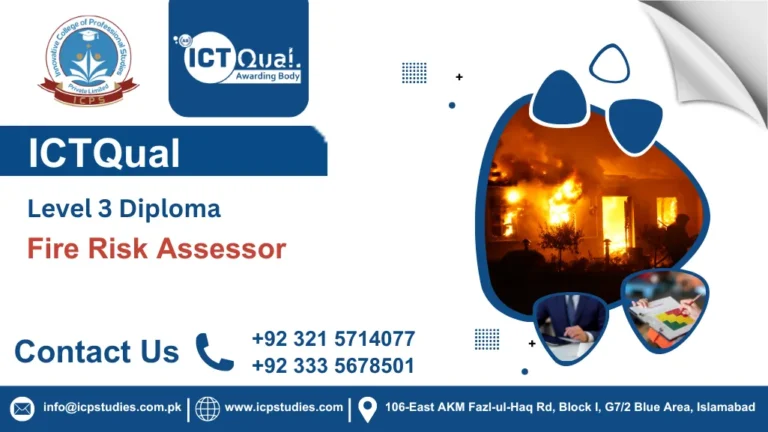In today’s fast-paced world, where safety concerns are paramount in every industry, the need for qualified health and safety trainers has never been more critical. With workplaces evolving and regulations constantly shifting, staying ahead of the curve requires not just knowledge, but the ability to effectively impart that knowledge to others. Enter the ICTQual Level 4 Award in Health and Safety Train the Trainer, a comprehensive program designed to equip individuals with the skills and qualifications needed to train others in health and safety practices.
The ICTQual Level 4 Award in Health and Safety Train the Trainer is a specialized certification aimed at professionals who wish to become proficient trainers in the field of health and safety. This qualification is designed to provide learners with the necessary expertise to deliver effective training sessions, ensuring that workplaces maintain the highest standards of safety and compliance.
ICTQual Level 4 Award in Health and Safety Train the Trainer serves as a beacon of expertise, empowering individuals to become effective trainers in the field of health and safety. By equipping learners with the knowledge, skills, and qualifications needed to train others, this program plays a crucial role in fostering a culture of safety and compliance in workplaces around the world. Whether you’re looking to enhance your own skills or invest in the development of your workforce, the ICTQual Level 4 Award offers a pathway to success in the realm of health and safety training.
All About ICTQual Level 4 Award in Health and Safety Train the Trainer
Course Overview
The ICTQual Level 4 Award in Health and Safety Train the Trainer is a specialized certification program designed to equip individuals with the knowledge, skills, and qualifications necessary to become proficient trainers in the field of health and safety. Developed to meet the evolving needs of workplaces worldwide, this program focuses on preparing participants to effectively deliver training sessions on health and safety practices, ensuring compliance with relevant regulations and promoting a culture of safety.
ICTQual Level 4 Award plays a vital role in equipping individuals with the expertise needed to promote workplace safety, reduce accidents, and ensure compliance with health and safety regulations. Whether employed in industries such as construction, manufacturing, healthcare, or hospitality, graduates of this program emerge as valuable assets capable of driving positive change and fostering a culture of safety within their organizations.
Study Units
- Introduction to Health and Safety Training
- Health and Safety Legislation and Regulations
- Risk Assessment and Hazard Identification
- Emergency Preparedness and Response
- Accident Prevention and Investigation
- Training Needs Analysis and Program Development
- Training Delivery and Facilitation Techniques
- Assessing Learning and Providing Feedback
- Continuous Professional Development and Improvement
The entry requirements for the ICTQual Level 4 Award in Health and Safety Train the Trainer typically include:
- Educational Qualifications:
- A minimum of a Level 3 qualification or equivalent in a relevant field.
- Professional Experience:
- Relevant experience in health and safety or training is beneficial.
- Understanding of Health and Safety:
- A foundational knowledge of health and safety regulations and practices is expected.
- English Language Proficiency:
- For non-native English speakers, proof of English language proficiency may be required (e.g., IELTS score or equivalent).
- Age Requirement:
- Candidates should generally be at least 18 years old.
- Additional Documentation:
- Some institutions may require a personal statement or CV outlining relevant experience and motivation for pursuing the course.
Always verify with the specific institution offering the course for any variations or additional requirements.
The ICTQual Level 4 Award in Health and Safety Train the Trainer is designed for:
- Health and Safety Professionals: Individuals responsible for implementing health and safety practices in their organizations.
- Training Managers: Those looking to enhance their skills in delivering health and safety training.
- Supervisors and Team Leaders: Managers who want to ensure their teams are knowledgeable about health and safety regulations.
- Educators and Trainers: Individuals involved in training who wish to specialize in health and safety topics.
- Compliance Officers: Professionals focused on ensuring workplace compliance with health and safety standards.
This course is ideal for anyone wanting to effectively train others on health and safety practices and regulations in various settings.
Learning Outcomes
The ICTQual Level 4 Award in Health and Safety Train the Trainer is designed for individuals who aspire to become proficient trainers in the field of health and safety. This course is ideally suited for:
- Health and Safety Professionals: Individuals already working in health and safety roles, such as health and safety officers, managers, supervisors, or consultants, who wish to enhance their skills and qualifications to train others in health and safety practices.
- Training and Development Specialists: Professionals involved in training and development within organizations who seek specialized expertise in delivering health and safety training programs to employees.
- Human Resources Personnel: HR professionals responsible for overseeing health and safety training initiatives within their organizations and ensuring compliance with relevant regulations.
- Occupational Health Practitioners: Healthcare professionals with a focus on occupational health who want to broaden their scope by becoming certified trainers in health and safety practices.
- Educators and Instructors: Teachers or instructors in vocational training institutions, colleges, or universities who wish to expand their teaching repertoire to include health and safety training.
- Industry Experts: Individuals with extensive experience in specific industries, such as construction, manufacturing, healthcare, or hospitality, who want to share their knowledge and expertise by becoming qualified health and safety trainers.
- Career Changers: Individuals seeking to transition into a new career path in health and safety training, regardless of their previous professional background, who have a passion for promoting workplace safety and well-being.
- Entrepreneurs and Consultants: Business owners or independent consultants looking to offer health and safety training services to clients as part of their portfolio of offerings.
This course caters to a diverse range of professionals who are committed to promoting workplace safety, reducing accidents, and ensuring compliance with health and safety regulations. Whether you are looking to advance your career, expand your skill set, or make a positive impact in your organization or community, the ICTQual Level 4 Award in Health and Safety Train the Trainer provides a solid foundation for achieving your goals in the field of health and safety training.
FAQs about ICTQual Level 4 Award in Health and Safety Train the Trainer







